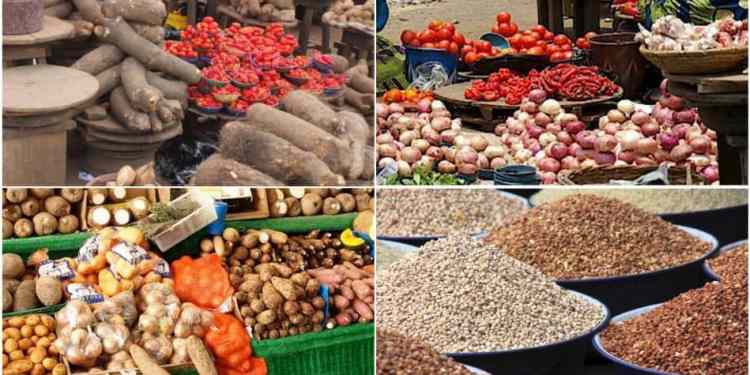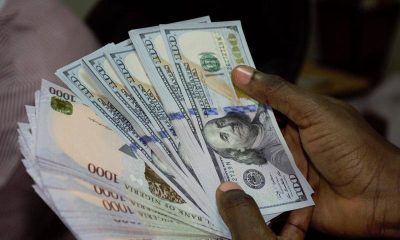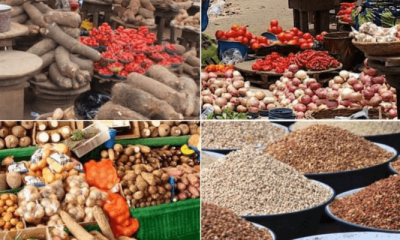Business
Why Price Of Food Won’t Drop Immediately Despite Naira Appreciation – Economists

As the Nigerian naira experiences an upturn against the dollar, economists have indicated that the positive effects on the country’s commodity prices might not be immediate.
Speaking to Punch, CEO of Economic Associates, Ayo Teriba, highlighted the time lag in the impact of currency fluctuations on market prices.
According to Teriba, while the strengthening naira is a positive sign for the economy, the translation of this development into reduced commodity prices will not be instantaneous.
Consumers may have to wait before seeing a noticeable decrease in the cost of goods and services, as market dynamics and pricing mechanisms gradually adjust to the new exchange rate reality.
He noted, “Foods that have been bought at the old exchange rate will still be tied to the old exchange rate.
“Whether a month or a quarter, it depends on the duration it takes to order and sell. The effect we should hope to see is that the prices have stopped going up. We call it acceleration.”
Echoing similar sentiments, President of Nigerian Economic Society, Adeola Adenikinju, highlighted the economic rationale behind the delay in price adjustments.
Adenikinju stated, “What people have in stock now was purchased at high prices. If they sell at lower prices, they are going to record losses.
“So until they replace the current one, that is when they will reduce their prices.
“But currently, to avoid losses, they will still sell at the rate at which they bought it. We will only start seeing the current prices of things as current stock is sold and new stock is acquired.”
According to Adenikinju, the central bank’s actions in the next few weeks will also reflect what the sellers will do.
He said, “They will be watching the markets to see if CBN will be able to sustain the stability of the naira.”
Nigeria has been battling soaring inflation, which accelerated to 31.70 per cent in February from 29.90 per cent in the previous month, driven primarily by food inflation, which rose to 37.92 per cent.
To tame the pacing inflation, the CBN raised the benchmark interest rate to 22.75 per cent in February from 18.75 per cent and further reviewed it upward to 24.75 per cent on Tuesday.
According to Professor of Economics, Babcock University, Onakoya Adegbei, the fact that prices go up and never come down is not peculiar to Nigeria.
He said, “Reduction in production usually comes with a lag because of rigidity in production.”
He emphasised that market expectations usually drive the delay.
“There is usually a lag and that is due to the expectation theorem. For example, if you expect the price of rice to increase, you will buy more and keep it in the house, So, it will increase your demand. But if you expect that prices will fall, what you already have you cannot dispose of.
“Reduction in production usually comes with a lag because of rigidity in production. If you already produce a certain product at a certain price and the price in the market is falling, you will then wait to see if the reduction will be sustainable. If you see that it is sustainable, then you can make a move to reduce the prices of your product. It is a lag effect,” Adegbei explained.
A foodstuff seller at EFAB market, Favour Uche told the platform, “The price of rice didn’t reduce even now that the dollar is down.”
Uche emphasised the challenges faced by traders, including the expenses incurred to maintain product quality amid infrastructural constraints.
“The price of rice didn’t decrease. Even now that the dollar is down, it still hasn’t reduced. For example, a carton of Titus fish cost N90,000 two weeks ago but today, the same carton of fish is sold at N95,000 as of March 29, 2024.
“Even with the fact that the dollar has reduced, but being in the system, I think I understand why. It is because they use one-third of their profit to buy diesel to cool these fish and keep them frozen. After all, there is no light. So, I understand their pain and why the prices are like that,” she added.
Another trader, Abdul Yusuf, who sells meat, asserted, “Price did not come down even with the dollar fall.
“Two weeks ago the price of one kilogramme of meat was selling at ₦4,800 but now, it is ₦5,000. So, the price did not come down even with the dollar falling.”






